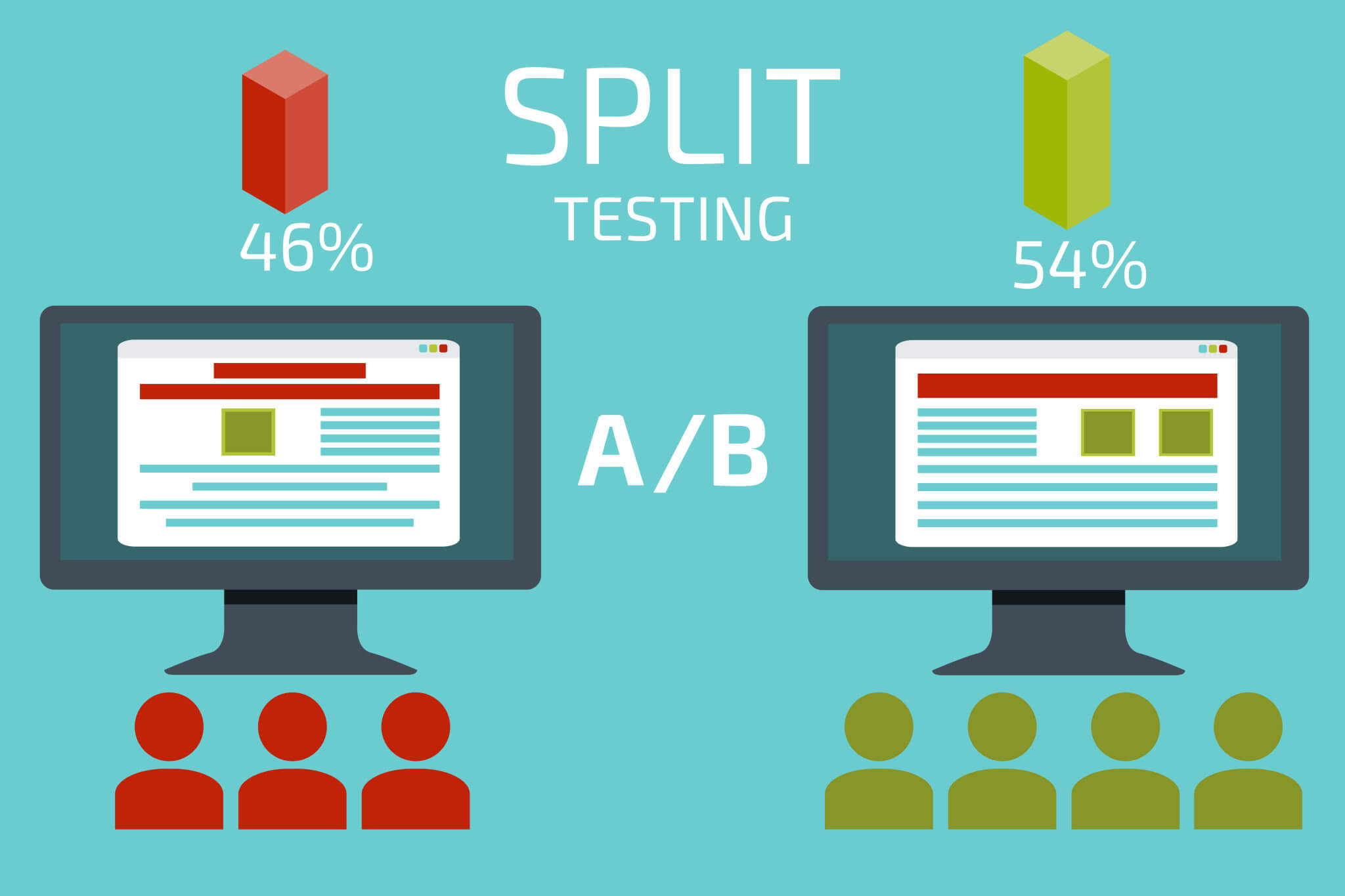Performance management software is developed to enhance business performance by prompting employee performance and productivity, whether in-house or remote affiliate partners. It substitutes a monthly performance re-cap process with real-time performance tracking and statistics, goal setting, KPIs, and feedback.
Affiliate performance management software does something that annual reviews can’t do. In this post we will see, what is an effective or best performance management software for affiliate business, what exactly is a performance management cycle, and how to get great results out of your performance tracking?
Performance management is a complex field to master. Moreover, it is ever-evolving, necessitating the use of an effective performance management system.
Every year, new trends in performance management arise, and all too often, human resource departments do it wrong.
Employees are left feeling deflated, unmotivated, and unengaged, while managers are irritated by poor levels of team and individual employee performance.
Fortunately, an increasing number of companies are recognizing the importance (and resulting benefits) of an effective performance management system. Therefore, the first step in revitalizing and improving your existing performance processes is to define an effective performance management system.
What Exactly Is Performance Management?

“Performance management is an ongoing process of communication between a supervisor and an employee that occurs throughout the year, supporting accomplishing the organization’s strategic objectives. The communication process includes clarifying expectations, setting objectives, identifying goals, providing feedback, and reviewing results.”
According to Berkeley
Performance management is a corporate management technique that allows managers to monitor and analyze the performance of their staff, or – in the case of affiliate marketing – the performance of affiliate campaigns or even remote affiliates.
In the office, the purpose of performance management is to create an atmosphere in which people can perform to the best of their ability in order to deliver the highest-quality work most efficiently and effectively.
A systematic performance-management program helps managers and employees agree on expectations, goals, career progression, and how individuals’ work fits into the firm’s larger vision.
In general, performance management considers individuals in the context of the larger workplace system.
What Performance Management Doesn’t Include
Performance management is neither a form nor a measurement tool. It’s not the same as an annual performance appraisal. It is neither a preparation for the appraisal meeting nor a self-evaluation. Although many firms utilize tools and forms to track employee goals, accomplishments, and improvements, these are not part of the performance management process.
Performance Management System’s Elements
These components may be present in the performance management system, but the entire system is important, not the individual components.
Many firms have established effective performance management systems without implementing all of the strategies listed below.

The following actions are part of a performance management system:
- Create detailed job descriptions with the help of an employee recruitment plan that specifies the selection team.
- Recruit potential workers and select the most qualified to engage in on-site or remote visual interviews.
- Conduct interviews to narrow your candidate pool.
- Hold as many extra sessions as necessary to learn about your applicants’ strengths, shortcomings, and capacities to provide what you require. Use potential employee testing and assignments where they are appropriate for the position you are filling.
- Select appropriate employees by utilizing a comprehensive employee selection process to locate the most qualified candidate with the best cultural fit and job fit that you require.
- Offer the job to your chosen candidate and discuss the terms of employment, including salary, benefits, paid time off, and other organizational advantages.
- Welcome the new employee to your organization.
- Provide effective new employee orientation, designate a mentor, and integrate your new employee into the organization and its culture.
- Negotiate performance criteria, outcomes, and metrics based on requirements and accomplishments between the employee and his or her new management.
- As needed, provide continued education and training.
- Continuously coach and provide feedback.
- Hold quarterly performance development planning meetings.
- Create effective remuneration and recognition systems that recognize and reward employees for their continuing efforts.
- Staff should be given opportunities for advancement and career development, such as lateral moves, transfers, and job shadowing.
- Assist with departure interviews to determine WHY valued workers leave the company.
Performance Management For Affiliate Marketing – The Basics
Is Affiliate marketing management and performance marketing management the same thing?

Affiliate Marketing is both a term for Performance Marketing and a subset of a broader “performance marketing” umbrella that include:

- Influencer Marketing,
- Email Marketing,
- Search Marketing,
- any other form of marketing in which the marketing partner exchanges sales (or completes desired actions) for commission payouts.
The most valuable KPIs are awarded and paid out in this model based on set performance metrics.
The term “Affiliate Marketing” predated “Performance Marketing” and is still in use today. However, it has evolved into a term that refers to a much broader picture of performance-based marketing, including social influencers, native advertisers, mobile app developers, geo-targeting paid search partners, email marketers, and others.
As the name implies, affiliate marketing is an affiliated brand and product marketing that has evolved into an innovative, dedicated performance-based approach that has become driving energy in incremental sales, new client acquisitions, customer segmentation targeting, market expansion, and high ROI campaigns.
“Performance Marketing,” which falls under the more traditional “affiliate marketing” term, that has previously been known for driving sales only through reward and coupon sites, has evolved into so much more in recent years.
Writing a blog post about a new product or business that can be shared through various content outlets, such as a personal blog or showcasing a product review on Youtube or Instagram, are now examples of how affiliate marketing has developed into “Performance Marketing” across the years.

Because of advances in technology, applications can now recommend other things to buyers within other apps and receive a commission on those purchases.
Conversation optimization tools, influencers with enormous email lists, and even plug-ins that provide consumers with a completely personalized shopping experience while charging only once the sale is complete are all examples of how Performance Marketing works today.
This new approach to marketing that is based on performance across devices, both online and offline, and across various marketing channels opens up a world of marketing exposure and value that no brand, advertiser, or merchant can achieve anyplace else.
Budgets frequently become limited at some point, and internal marketing channels may compete for that budget; however, with affiliate marketing, the budget cap becomes non-existent, bringing a lift in reach, engagement, and conversation above and beyond what a brand can afford to advertise for itself.

As a strategy, performance marketing provides merchants with:
- higher conversion rates,
- additional brand/product exposure at no extra cost,
- an added benefit of generally higher consumer engagements,
- higher average order sizes (basket values),
- third-party endorsements
All of which leads to sales, brand loyalty, and increased buyer retention.
So, while Affiliate Marketing and Performance Marketing may appear to be the same thing, they are not. Each takes a distinct strategy, and Performance Marketing today encompasses so much more.
Performance Marketing is Affiliate Marketing on a larger scale, with new partnerships and technology being incorporated into the Performance Marketing mix.
At the end of the day, both words result in some type of bounty, commission, or kickback to the affiliate or associated partner for the referral or sale.
What Are the Benefits of Performance Marketing?

There are numerous benefits to incorporating Performance Marketing into your growth and online marketing strategy. Aside from the obvious benefit of building your brand through third-party partners with their own audiences, budgets, and reach, which increases your market share, targeted traffic, and audience engagement, you can also reduce risk, increase market reach, and decrease budgets while growing your brand and revenue streams.
In addition, Performance Marketing is completely trackable, measurable, and transparent. In fact, brands can now monitor each buyer’s whole click-to-consume path and determine where to invest more and in which partners, channels, and channels to achieve better outcomes.
Because Performance Marketing is paid only after the desired action is taken, the risks are lower, the CPA (Cost Per Acquisition) is frequently lower, and the ROI is higher. This leaves up funds in the budget for other marketing methods to be developed and tested for you to grow and compete.
What Are Some Effective Performance Marketing Strategies?
1. Concentrate on creating a decent landing page and offer.
When it comes to Performance Marketing, a poor landing page might stop visitors from converting, and a poor offer can keep them from going through.
Furthermore, if either of these isn’t working as well as it should, it will discourage partners from working with you and being enthused about promoting your product and brand.
As an advertiser, make that you are providing your publishers with tempting offers to promote and that you are auditing your website for any issues that a visitor may encounter when they arrive at the proper landing page (s).
Consider and test the complete user experience when they arrive at your website or mobile site.
As a publisher, you should always audit the links and offers you have accessible, keep the most recent content and releases up to date, and update any underperforming landing pages.
2. Optimize A/B testing and optimization for revenue-driving KPIs.
Any skilled marketer understands that testing and measurement are necessary for any solid marketing strategy to work.

When it comes to Performance Marketing, experiment with numerous approaches and methods for optimizing conversions and click-through rates, AOVs, and traffic through A/B testing to better understand what works and what doesn’t.
3. Determine your traffic sources.
With Performance Marketing, it is critical to ensure that your traffic is coming from trusted sources and areas.
When less-than-reputable sources advertise you, consumers will be hesitant to trust you as a brand and will be discouraged from purchasing or visiting you again.
4. Track and monitor everything you can.
Attribution, mobile vs. desktop, bounce rates, and so on all provide crucial data points that can provide you with a better understanding of what is working and what is not.
Tracking and quantifying gains and losses is just as crucial as testing when it comes to getting the maximum out of your Performance Marketing efforts.
Your program and sales will not grow until you analyze your work and make improvements to optimize it.
5. Be compliant.
Performance Marketing is all about establishing partnerships between brands and publishers to reach, engage, and convert the audiences of others to increase sales and brand awareness.
To be successful, both brands and publishers must adhere to the regulations.

Because the Federal Trade Commission (FTC) has ever-changing regulations and standards in place, it is the responsibility of both brands and publishers to stay on top of these federal standards to ensure that their programs and postings are aligned.
To make you are in compliant, click here for an easy in-depth look at FTC standards, or work with professional affiliate management software companies, such as those indicated above.
What Are Some Performance Marketing Trends to Keep an Eye On?
Every form of marketing, including Performance Marketing, is constantly evolving. Suppose you wish to boost your business in the background. In that case, employee performance management software will come as a handy and nearly invisible, low-maintenance tool to give you feedback in real-time about how well your business and your colleagues do. Continuous performance management allows then in a long run not only to track employee performance or manage affiliates but also increase employee engagement
With this form of marketing accounting for more than 16 % of eCommerce sales in 2017, it’s simple to understand how this strategy’s growth is rising.
As a driving driver for eCommerce conversions, this percentage places Performance Marketing on a level with email marketing and ahead of display advertising.
With this growth, more people are pursuing a career in Performance Marketing, more advertisers are investing in it, and more publishers are entering the area.

With an increase in influencers, performance-based technology businesses, and content sites, your brand will have more options to promote itself in the performance marketing area.
Furthermore, with more options for improved tracking and attribution thanks to third-party tracking platform enhancements, these enhancements enable first click models where publishers can rest assured they will not be penalized if someone leaves their referral and returns to buy from a different source.
Multi-touch, position-based, time decay, and linear choices are also new innovations to watch for in tracking and attribution.
Another fascinating trend to watch an eye on in Performance Marketing is the continuous development and use of Artificial Intelligence (AI) and Machine Learning to drive sales on a performance basis.
Automation, segmentation, personalization, and optimization are four areas to keep an eye on – because to AI and machine learning; these keywords are gaining traction.
In Performance Marketing, marketers must track and measure hundreds or thousands of data points, if not millions or billions.
Using machine learning, AI removes the complexity from these data points and allows for seamless scaling of effective optimization.
Adapting to this expanding trend also allows marketers to free up their time, allowing them to be more innovative in their marketing efforts and receive more value for each dollar invested.
What Can Scaleo Do for Your Business?
Scaleo is a simple, powerful cloud-based affiliate marketing performance management software that provides meaningful insights into the performance of your individual affiliates (or employees) and the performance of your campaigns. Our platform help achieving the ultimate aim of high-performance company culture by analyzing each and every bit of your business, providing real-time reports.

Scaleo has an intuitive interface that allows affiliate managers to provide performance insights in seconds, without the arduous, administrative burden and manual analysis.
Marketing performance management software – Conclusion
Performance marketing management places great importance on the relationships that exist between many moving parts, from affiliate managers who drive relationships and strategy to third-party tracking platforms that track and credit campaign results.
Performance marketing management and affiliate marketing management software enables the scale of reach, engagement, and conversion of new buyers in new areas at a lower cost, lower risk, and far higher ROI than any other marketing channel at scale.
Same as affiliate marketing, it allows you to establish your brand, enhance product recognition, and engage with customers without the constraints of money or competing marketing channels.
It is a piece that is stacked on top and can provide an average of 16% to your top and bottom lines.
Working with publishers, affiliate management companies, and affiliate networks as an extension of your brand provides you with an additional reach that you might not have had using more traditional marketing methods.
Whether you currently have an affiliate program, it is a good idea to assess your strategy and program to see if you may benefit from adding an outsourced management team to the mix or totally managing the program.
Once you have picked the best performance management software, all you need to do is test, track, measure, and optimize.
Last Updated on January 19, 2024



